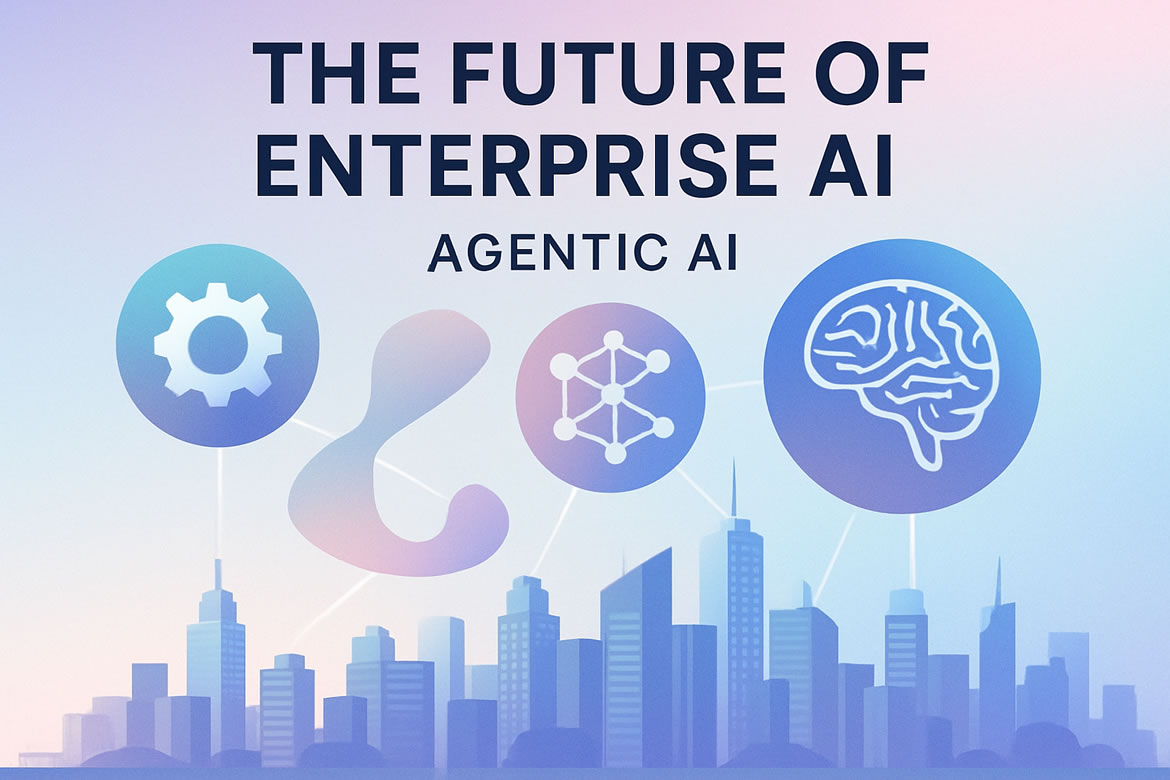Artificial Intelligence (AI) continues to redefine the landscape of enterprise technology, offering unprecedented opportunities to improve efficiency, decision-making, and innovation. Among the most promising advancements is Agentic AI—a form of intelligent automation capable of proactive, autonomous operation. As IT leaders and decision-makers, understanding how agentic AI is shaping the future is essential for maintaining competitive advantage and steering your organization toward sustainable growth. This article explores the trajectory of enterprise AI, emphasizing the transformative potential of agentic AI and guiding you on how to embrace this revolutionary technology.
The Growing Market and Technological Advancements
The enterprise AI market is experiencing rapid growth, with projections indicating it will reach approximately 7 billion by 2025(Forrester, 2024). This surge is driven by diverse industry adoption, including software development, healthcare, cybersecurity, finance, and retail. Notably, agentic AI is exhibiting a compound annual growth rate (CAGR) of around 33.8%, reflecting its expanding role in enterprise automation.
Recent reports highlight ongoing innovations where companies are integrating multiple AI techniques to develop robust agentic systems. For example, MarketsandMarkets notes that the agentic AI sector has grown from 4 billion in 2020 to an expected 3 billion by 2025, growing at a CAGR of approximately 44.5%. These developments underscore an industry-wide commitment to creating autonomous, context-aware AI solutions that are capable of decision-making and action-taking without human intervention.
Key Technologies and Trends
Leading industry players are leveraging frameworks such as Google’s TensorFlow and Microsoft’s Azure Machine Learning to build smarter, more adaptable agentic systems. These systems can interpret complex data, learn from interactions, and execute multi-step workflows—transforming reactive automation into proactive, self-driving operations.
Impacts of Agentic AI on Enterprises
The integration of agentic AI is revolutionizing how enterprises operate, offering a shift from reactive to proactive management:
- Enhanced Automation and Resilience:Agentic AI enables systems to anticipate events, adjust processes, and resolve issues autonomously. Gartner predicts that by 2028, nearly one-third of enterprise softwarewill incorporate agentic capabilities, significantly boosting operational resilience.
- Operational Efficiency:Intelligent agents interpret contextual information, learn from interactions, and execute complex workflows more efficiently than traditional automation, reducing manual intervention and error rates.
- Strategic Decision-Making:With insights derived from self-learning systems, organizations can make faster, more informed decisions—particularly in high-stakes fields like cybersecurity and finance.
- Competitive Advantage:Early adoption of agentic AI can differentiate enterprises, enabling them to respond swiftly to market changes, optimize resource utilization, and innovate continuously.
Practical Steps for Embracing Agentic AI
To harness the potential of agentic AI, organizations should consider the following steps:
- Assess Readiness:Evaluate existing infrastructure, data maturity, and talent capabilities to integrate autonomous AI systems.
- Invest in Skills and Tools:Develop expertise in advanced machine learning, AI ethics, and automation technologies. Leverage cloud platforms and AI frameworks to accelerate deployment.
- Pilot and Iterate:Start with pilot projects in critical areas such as supply chain management, customer support, or cybersecurity, then scale successful initiatives.
- Focus on Governance:Establish protocols for transparency, accountability, and ethical AI usage—essential for maintaining trust and compliance.
- Stay Informed:Keep abreast of industry trends and emerging best practices to continuously refine your AI strategy.
Conclusion
Agentic AI is poised to fundamentally transform enterprise operations by enabling systems to act proactively and intelligently. As Gartner projects, a significant portion of enterprise software will adopt these capabilities within the next few years, signaling a new era of autonomous, resilient, and agile organizations.
Embracing agentic AI today prepares your enterprise to stay competitive, innovate faster, and deliver superior value. The future belongs to those who not only understand this technology but actively integrate it into their strategic vision.
Next Steps:Explore relevant AI frameworks, attend industry seminars on autonomous systems, and start small with pilot projects to transition smoothly into this new paradigm.







